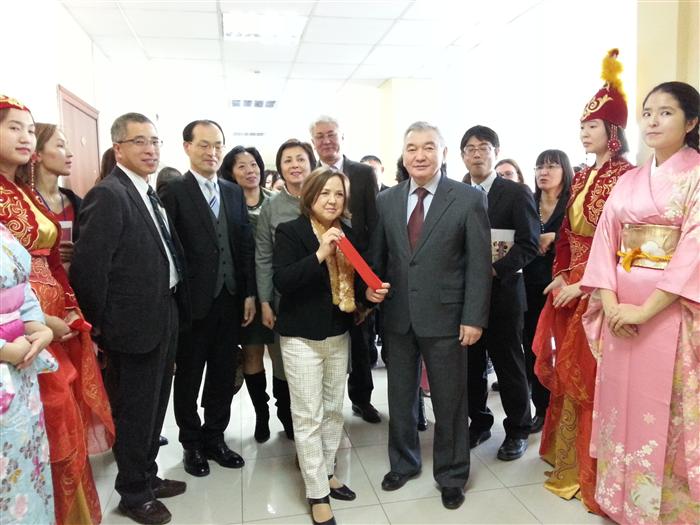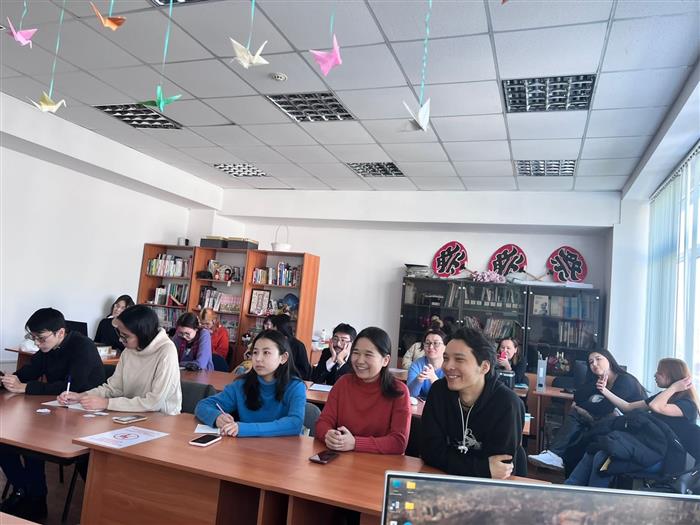Japan and Central Asia study center (University of Tsukuba`s Almaty office)
In order to coordinate and intensify research activities in the field of Japanese studies and Central Asian studies, scientists from KazNU named after. Al-Farabi and the University of Tsukuba (Japan, Tsukuba) signed a bilateral cooperation agreement (2015).
On the basis of this agreement, the Center for the Study of Japan and Central Asia (Almaty office of the University of Tsukuba) was opened at the Department of the Far East of the Faculty of Oriental Studies. The opening of the Center is due to the need to unite the research team of KazNU. Al-Farabi and the University of Tsukuba for systematic research and solving humanitarian problems, organization and implementation of research work, improving the quality of training in the field of Japanese studies.
The purpose of the center is to develop humanitarian ties between the Republic of Kazakhstan and Japan through the development and implementation of specific mechanisms for cooperation in research, educational, methodological, political, economic and socio-cultural spheres.
To achieve this goal, the following areas of CNCA activities are being implemented: Holding international conferences, lectures, round tables and seminars on topical scientific problems; education issues; various domestic, bilateral and international issues; entrepreneurial and trade potential, culture, tourism, etc.; attracting leading Japanese scientists to guide PhD-doctoral students; implementation of educational projects: preparation of textbooks, teaching aids, dictionaries and phrasebooks, conducting joint online courses and distance learning programs, etc.; implementation of scientific projects (including and jointly with Japanese scientists); cooperation on academic mobility issues; wide coverage in the media of achievements in the field of Kazakh-Japanese cooperation, holding joint cultural events.
The opening of the scientific and educational center made it possible to open up new professional opportunities for students, expand the interuniversity educational space, and the ability to work online to overcome translational barriers, bring together world-class scientists in the search for solutions to the problems of science and education, ensure a close relationship between research and development and educational process.










